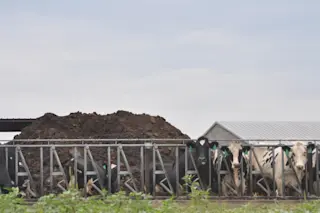In his 2010 book, The Climate Fix, Roger Pielke Jr. writes:
The view that decarbonization of the global economy is a political problem and not a technological problem has been strongly influenced by a 2004 analysis by two Princeton researchers, Stephen Pacala and Robert Socolow, that was published in Science. The analysis is often referred to by its very useful focus on a concept called a "stabilization wedge"...In their paper, Pacala and Socolow identified fifteen possible stabilization wedges, including approaches such as carbon capture and sequestration (CCS) from coal power plants, enhanced nuclear power, and improved soil management in agriculture."
After detailing a major critique of the wedges approach by NYU's Martin Hoffert, RPJ goes on to write:
The stabilization wedges and the IPCC have shaped the policy debate on decarbonization away from technological innovation, under an assumption that we have all the technologies that we need (or soon will ...













